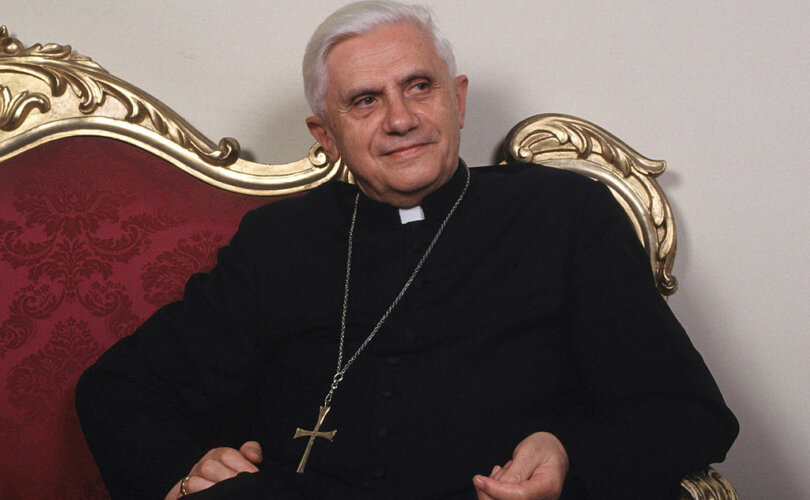(LifeSiteNews) — As a young theologian named Joseph Ratzinger, the late Pope Benedict XVI came to alienate his fellow progressives because he saw in the Second Vatican Council a “continuity with the tradition of the Church” instead of a “revolution inside the Church,” an Italian historian has said.
In an interview with LifeSiteNews editor-in-chief John-Henry Westen, Roberto de Mattei addressed the popular conception that Ratzinger the theologian had an intellectual conversion from progressivism to conservatism. The Italian historian said that this is not really the case, describing him as an intellectually consistent “moderate” progressive.
“[Ratzinger] interpreted Vatican II in continuity with the tradition of the Church, so there was the birth of the so-called ‘hermeneutic of continuity,’ and of course Cardinal Ratzinger was the more prominent representative of this new theology,” he said.
As de Mattei explained, Ratzinger was a significant contributor to the preparations and discussions at the Second Vatican Council, along with other progressive theologians like Karl Rahner and Henri de Lubac.
But, de Mattei noted, “something changed after Vatican II.”
“I mean that there was a fracture, a division, inside the progressive front between a more radical wing and a more moderate wing,” he said. “And so the more radical theologians [were] Karl Rahner, Marie-Dominique Chenu, [Edward] Schillebeeckx, and the others. And on the opposite side there were Joseph Ratzinger, Hans Urs von Balthasar, [and] Henri de Lubac.”
“And these [latter] theologians founded the review Communio, which was opposed to the progressive review Concilium, and the theologians of Concilium follow the so-called ‘School of Bologna’ of Giuseppe Alberigo. And for them, Vatican II had to be a revolution inside the Church,” he added.
In the eyes of the more “radical” theologians, Ratzinger became a “traitor” because his “hermeneutic of continuity” interpretation of the Second Vatican Council was insufficiently progressive.
“In fact, there was a certain coherence in [Ratzinger’s] attitude. So perhaps more than a conversion, I would speak of it [as a] development of his position,” de Mattei said.

